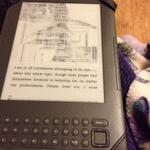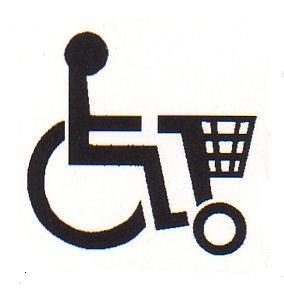Regular readers of my blog, and especially those who follow me on social media will know that life recently has been very tough due to the symptoms that are caused by the neurological condition that I am now forced to live with. The symptoms associated with my neurological condition such as dizziness, fatigue, pain as well as the severe weakness and trembling in the legs have all deteriorated. And as a result of this deterioration, it has resulted in the loss in the ability to do a lot of the things that once came so easily, or those activities that I enjoy participating in. One example, is the great difficulties that I have experienced in visiting our local high street. Before this sudden deterioration, I found it so easy to be able to park in the town’s car park and walk the moderate distance towards the top end of the town to visit the shops that I like to browse and buy everything that I need. However, recently due to the deterioration in the symptoms in my legs (the pain, trembling and weakness) even the short walk from the car park to the shops have felt more like the prospect of walking Mount Everest.

As a result, my carer has instead had to use the disabled parking bays in the town centre itself, so that I am able to use the amenities that I need to use, and still be able to go to the shops that I like to visit. This arrangement has been far easier as they are extremely close to all the shops that I regularly shop at, but in all honesty, some days it is still a struggle to go shopping because of the severe weakness and trembling in the legs. The dizziness, has also caused a very big obstacle in going out because it has become so intense, and has resulted in me having to wear a hat when visiting places (wearing a hat helps to limit the exposure to triggers that can cause vertigo, double vision or make the dizziness worse).
Last week was a particularly bad week, and a trip to town was cancelled after my legs almost gave way in the middle of town. Instead, because the pain and weakness was so bad, my carer and I returned to the house and watched a film. It is bad mornings with chronic illness like these which can be difficult for our morale and self-confidence; and very often it can feel that our day is already over thanks to chronic illness, unable to accomplish anything because of debilitating symptoms and so instead we find ourselves spending the rest of a ‘bad day’ spent in bed or lying on the sofa watching a marathon of our favourite TV series (my guilty pleasure of the moment is One Tree Hill).
However, I recently learnt that it does not have to be this way. I found a blog post that read:
Today is not over yet.
And it is true. At the time, I wrote off the day that my legs decided not to work properly and had to spend the morning watching a DVD instead of the shopping trip I had planned. But that was not the end of the day. After the film, and after I regained enough strength in my legs, my carer and I took a short drive to a nearby coffee shop and had lunch. It actually turned out to be a lovely trip out and exactly what I needed to take care of myself and my body against the effects that my condition has had on my life. And perhaps ‘Today is not over yet’ is a mantra that we spoonies need to remember. Just because a day has started off bad because of the effects of chronic illness does not mean the day will be bad. It does not even mean that the day is over.

We can find joy in the little things on the bad days – a letter or card from a dear friend landing on the doorstep, a cuddle from a furry friend, a favourite song on the radio, someone making our favourite meal. Our silver linings can come from the smallest of things.
So, our chronic illness may have meant that we have frittered away our time doing as little as possible, however as the quote suggests it does not mean that our day is over. We are still here and we are still very much alive and as long as we are it is not to late to do something, to do anything. It can provide the perfect opportunity to pursue some self-care practices in order to take care of not just our physical health but also our psychological health. A few self-care activities may include:
- having a soothing bath
- meditating
- reading
- pampering yourself, e.g. getting hair done or even a manicure
- crafting
- can even be as simple as setting limits for yourself
Even if you do end up doing something, it may be something that we hadn’t planned on doing or even wanted to do. However, it might just end up being something we needed or better than originally planned. Just like my impromptu visit to a local coffee shop.
So next time, you have had a bad start (or at any point of the day, really) to the day and your thought is navigating towards writing the entire day off as a bad one, just remember:
Today is not over yet.












